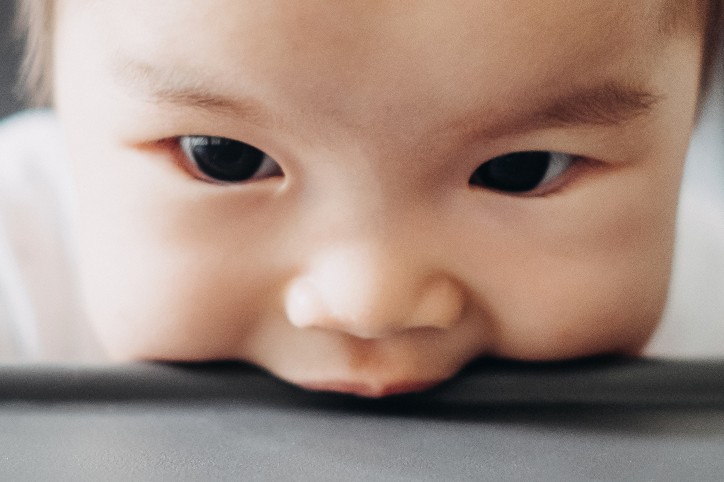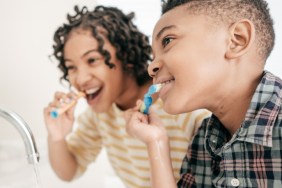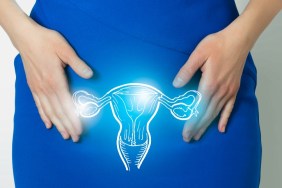When a baby starts to become extra fussy, starts to chew on just about anything and drools seemingly all over the place – that’s always an alert for me that, that child is likely teething. When it happened with my son at around the five month mark, for the first time, I had so many questions… from how long this would last and what I could do to mitigate his pain, to how to care for his newly erupted tooth.
To help answer these questions – and more – for anyone going through this inevitable ordeal, I turned to Philips Sonicare professional education managers, Cathy Stewart, RDH, BS and Danette Ocegueda, RDH, MS.
Keep reading to learn about everything there is to know about baby/toddler teething – they have some truly helpful insight!
Momtastic: When does teething usually begin and what are some signs?
Cathy Stewart and Danette Ocegueda: Teething usually starts when your little one is 6 – 8 months old. Some babies may not start teething until around 12 – 14 months of age. As their teeth come in, some babies may become fussy, sleepless and irritable, lose their appetite or drool more than usual. Diarrhea, rashes and a fever are not caused by teething. If your baby has a fever or diarrhea while teething or continues to be cranky and uncomfortable, call your physician.
Most importantly, take your baby to a pediatric dentist by age one to ensure that you are armed with the right information to help comfort your little one – and to set them up for a lifetime of healthy smiles.
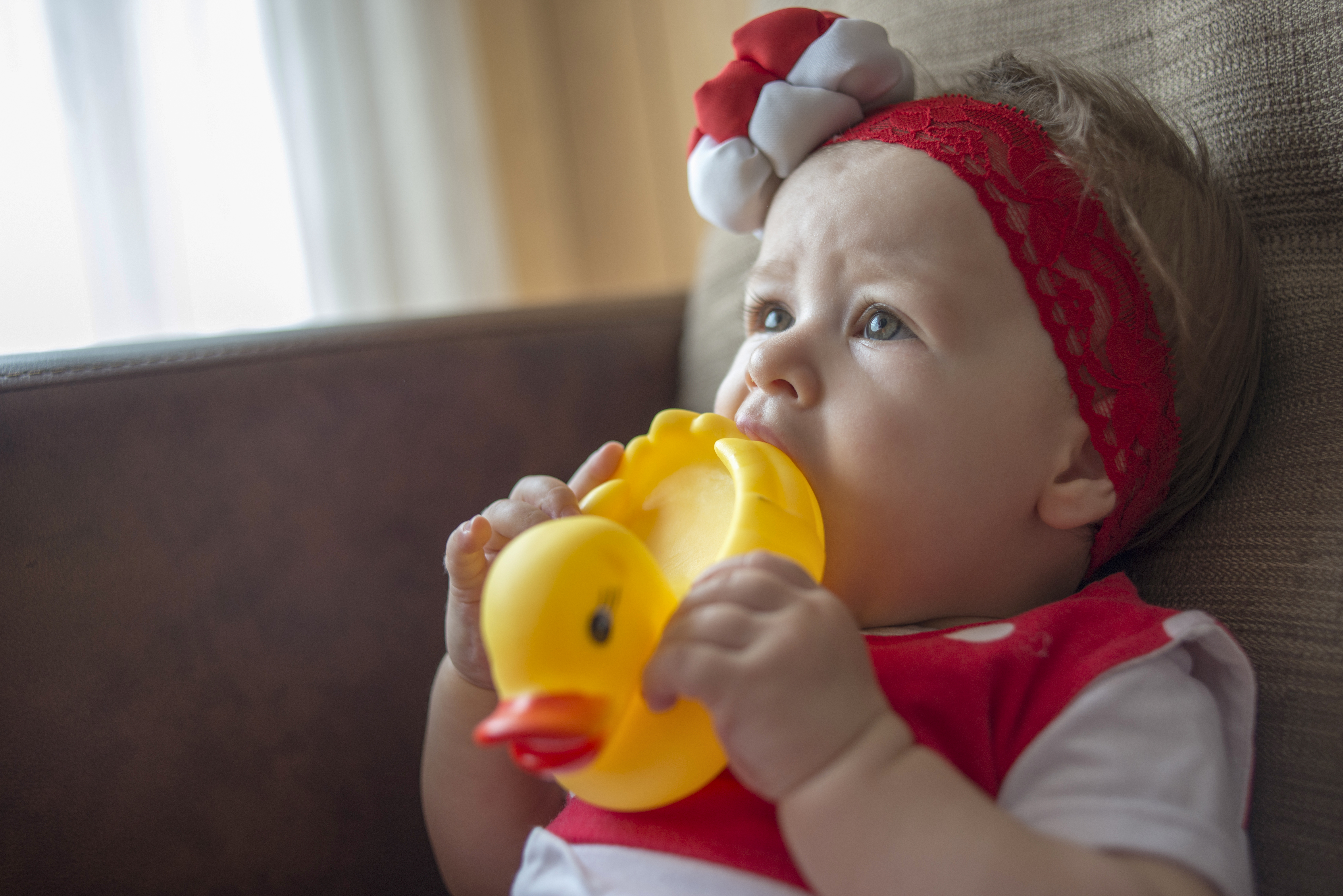
Momtastic: How long does it last and is it on and off/in stages?
Cathy Stewart and Danette Ocegueda: Teething pain or teething usually comes in bursts. It lasts for a few days at a time before easing again. The process of ‘teething” can take up to 3 years. Young children usually starting teething at approximately 6 months of age and the process of teething can last until the age of 3 years. Most children have their full set of baby teeth by age 3.
The actual process of erupting a tooth or teething can last about a week, however, this process can seems longer if multiple teeth arrive in quick succession. Usually babies /toddlers will show signs (discomfort, fussiness, drooling, etc.) for about a week. The side-effects of teething are often present up to four days before and three days after a tooth emerged.
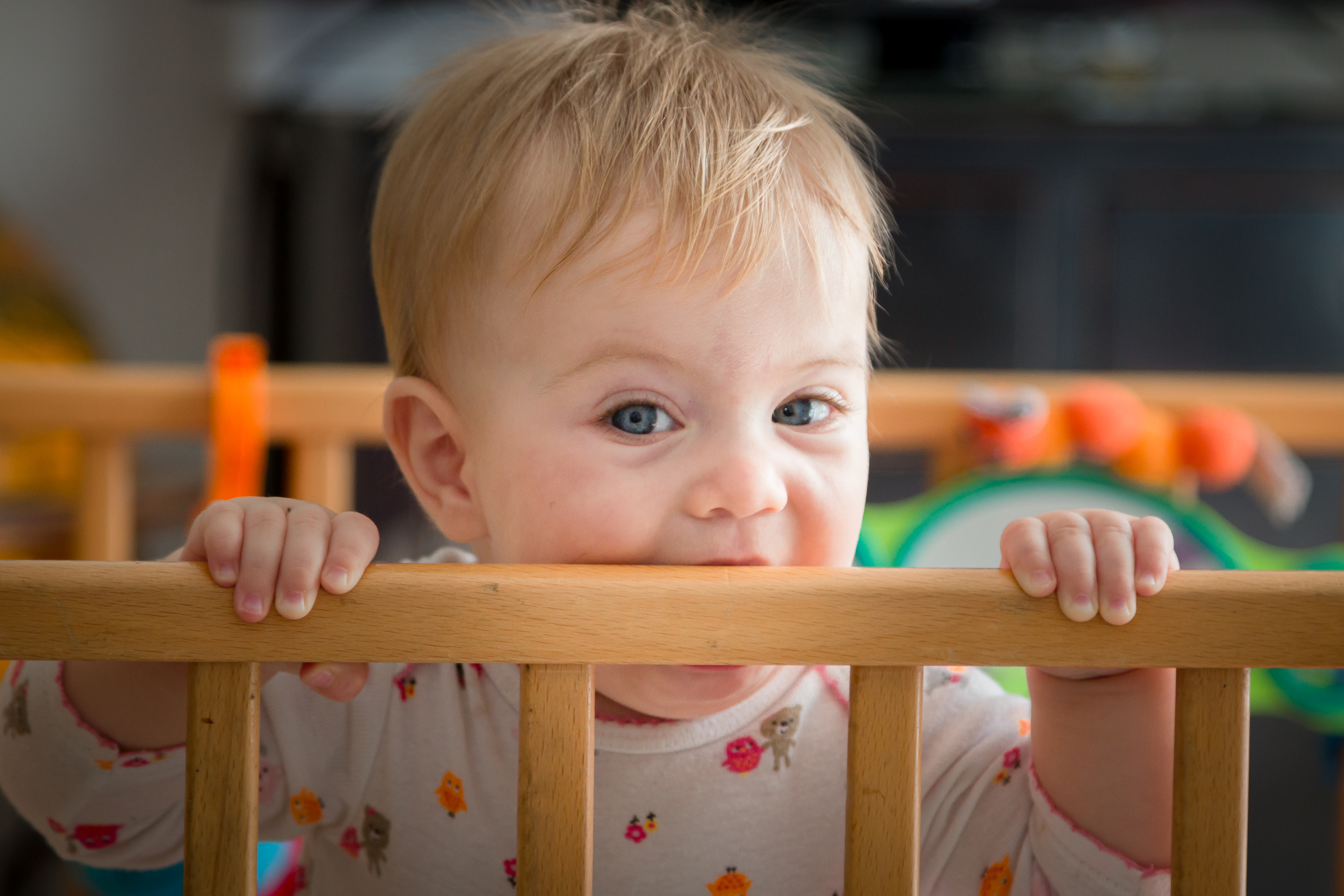
Momtastic: Can you highlight the different stages and how bad the pain (relative to other stages) is?
Cathy Stewart and Danette Ocegueda: Teething affects babies differently, but here are a few things that parents can do to help their babies with the discomfort and potential pain of teething – and to help everyone at home get more sleep:
- Give your baby a firm rubber teething ring to chew on. Avoid liquid-filled teething rings, or any plastic objects that might break.
- Gently rub the gums with a cool, wet washcloth, or (until the teeth are right near the surface) a clean finger. You may place the wet washcloth in the freezer before using, but wash it before using it again.
- Feed your child cool, soft foods such as applesauce or yogurt (if your baby is eating solids).
- Use a bottle, if it seems to help, but only fill it with water. Formula, milk, or juice can all cause tooth decay.
- Topical pain relievers and medications that are rubbed on the gums are not necessary, or even useful, because they wash out of the baby’s mouth within minutes.
Momtastic: When parents are picking teethers any tips?
Cathy Stewart and Danette Ocegueda: Look for teethers made of solid rubber and avoid liquid-filled teething rings, homeopathic teething tablets or plastic objects that could break. As a reminder, please research products before purchasing just because something is marketed as a teether doesn’t always mean it’s safe.
Additionally, the Food and Drug Administration recommends that parents and caregivers not use benzocaine products for children younger than 2. “We are also warning that benzocaine oral drug products should only be used in adults and children 2 years and older if they contain certain warnings on the drug label,” the FDA said in a May 2018 Statement. “These products carry serious risks and provide little to no benefits for treating oral pain, including sore gums in infants due to teething.” Benzocaine is an over-the-counter anesthetic, which the FDA notes are usually under the product names Anbesol, Hurricaine, Orajel, Baby Orajel and Orabase. Benzocaine has been associated with a rare but serious—and sometimes fatal—condition called methemoglobinemia, a disorder in which the amount of oxygen carried through the blood stream is greatly reduced.
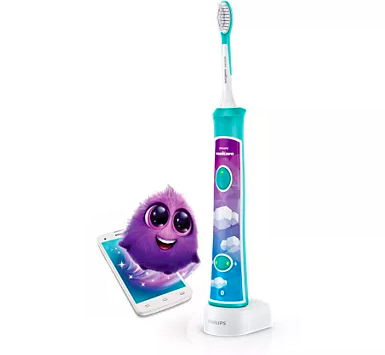
Momtastic: When should parents start using a toothbrush?
Cathy Stewart and Danette Ocegueda: Starting at birth, clean your child’s gums with a soft infant toothbrush or a cloth and water. As soon as the teeth begin to appear, start brushing twice daily using fluoridated toothpaste and a soft, age-appropriate sized toothbrush. For children 0-2-years-old, use a smear of toothpaste (about the size of a grain of rice); for children between ages 3 and 6 years, use a pea-sized amount of toothpaste.
When your child is age 3 or older, it is time to consider the use of a power toothbrush that has been developed specifically for children. A good choice is Philips Sonicare For Kids power toothbrush with Bluetooth wireless technology and interactive coaching app that helps connect children to a lifetime of healthy habits. They can navigate the app with the help of their oral health training partner, “Sparkly,” who teaches proper brushing techniques through fun, educational games. Whereas, the separate dashboard in app allows parents to monitor performance and set up custom milestones and incentives such as rewards and badges to keep children motivated. Specialized sonic technology drives fluid between teeth and along the gum-line, gently delivering more than 500 brush strokes per second to your child’s baby teeth.
Until you’re confident that your child can brush on his or her own, continue to brush your child’s teeth twice a day. Young children require assistance and do not have the ability to brush their teeth effectively.
To prevent dental problems, your child should see a pediatric dentist when the first tooth appears, or no later than his/her first birthday.
